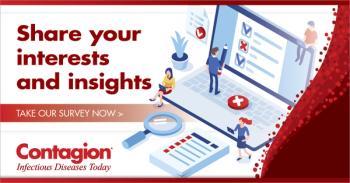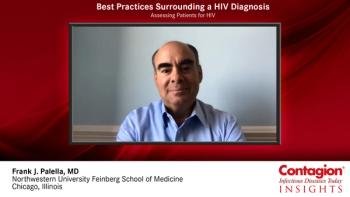
Counseling Patients About HIV Treatment
Best practices for talking with patients about the importance of rapid initiation of therapy for HIV, and other important topics related to their treatment options.
Episodes in this series

Frank J. Palella, MD: The way in which health care providers approach the initiation of first-ever therapy is pivotal because we need to do several things. We need to present our clients—persons with HIV— with the knowledge, with the information that therapy is available and that it’s needed. We have to appear in the role of adviser and not be dictatorial. We don’t use sentences like, “You need to be on therapy” or “You should do this.” We should ask questions that engage. “Are you aware that good therapies exist for HIV? Are you aware that being infected with HIV constitutes a scenario in which there is some urgency to get therapy started?” These conversations need to include not merely education but also solicitation from the person with HIV as to what their thoughts are: their preexisting attitudes, beliefs, and level of information regarding what HIV therapy is.
With that as the underpinning, we need to try to impress on persons with HIV the idea that initiation of therapy is an urgent issue for several reasons. The more promptly and rapidly we initiate therapy for HIV, the quicker they’re going to get the benefits health-wise attendant consequent to virologic suppression and having a healthier immune system. The second part of this is the importance of starting therapy from a public health point of view. The sooner that therapy is initiated and the sooner that viral load is suppressed, the more likely we would be in a situation where they’re essentially incapable of transmitting HIV sexually.
Part of the urgency is that we want to get you as a patient to undetectable because then HIV isn’t transmissible. Those are the kinds of components. Once we get those factors and that level of knowledge and awareness in place, then we can start talking about the therapeutic options, the menu of options available to treat HIV: fixed-dose combinations, single-tablet regimens, dosing once a day. Convenience, effectiveness, tolerability, the ability of treatments to interact well with medications that the patient might be taking for other conditions.
Safety and efficacy are always the starting points of a conversation regarding therapy. Medication is worthwhile only if it’s effective. Fortunately, we have many combinations of medications that are effective. And by effective, I mean they will suppress viral load; suppress viral replication allowing for immune health, immune reconstitution or improvement; and most importantly for avoidance of adverse effects health-wise of HIV. Efficacy is always the starting point. Safety then includes several things. Safety includes consideration of tolerability, both long and short term, the ability to avoid what might be treatment-limiting adverse effects. People don’t want to get sick from their medications; none of us does. Feeling bad from a medication that you’re taking is probably the single most potent deterrent to optimal adherence to that medication.
We also need to talk about tolerability; the likelihood that a medication will or could result in more long-term adverse effects that could impact overall health and lead to the need for other medication treatments. These include some of the cardiometabolic conditions: kidney, sleep disturbances, gastrointestinal, and other things. Fortunately, the most modern single-table regimen fixed-dose combinations largely avoid the vast majority of these conditions. Likewise, tolerability includes a discussion of whether the medication combinations we’re introducing for the treatment of HIV play well or interact in a benign fashion with medications that persons with HIV may already be taking for the treatment of coexisting conditions, like high blood pressure, high cholesterol, insomnia, or depression.
Transcript edited for clarity.
Newsletter
Stay ahead of emerging infectious disease threats with expert insights and breaking research. Subscribe now to get updates delivered straight to your inbox.































































































































